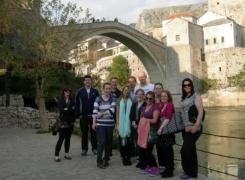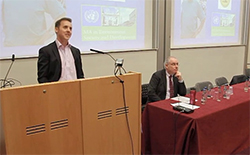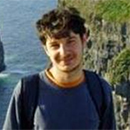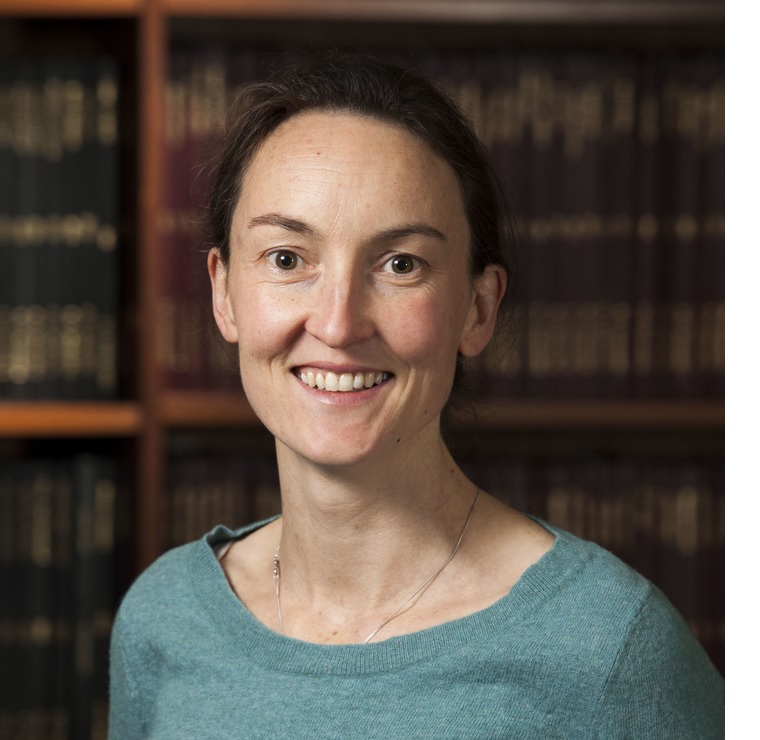-
Courses

Courses
Choosing a course is one of the most important decisions you'll ever make! View our courses and see what our students and lecturers have to say about the courses you are interested in at the links below.
-
University Life

University Life
Each year more than 4,000 choose University of Galway as their University of choice. Find out what life at University of Galway is all about here.
-
About University of Galway

About University of Galway
Since 1845, University of Galway has been sharing the highest quality teaching and research with Ireland and the world. Find out what makes our University so special – from our distinguished history to the latest news and campus developments.
-
Colleges & Schools

Colleges & Schools
University of Galway has earned international recognition as a research-led university with a commitment to top quality teaching across a range of key areas of expertise.
-
Research & Innovation

Research & Innovation
University of Galway’s vibrant research community take on some of the most pressing challenges of our times.
-
Business & Industry

Guiding Breakthrough Research at University of Galway
We explore and facilitate commercial opportunities for the research community at University of Galway, as well as facilitating industry partnership.
-
Alumni & Friends

Alumni & Friends
There are 128,000 University of Galway alumni worldwide. Stay connected to your alumni community! Join our social networks and update your details online.
-
Community Engagement

Community Engagement
At University of Galway, we believe that the best learning takes place when you apply what you learn in a real world context. That's why many of our courses include work placements or community projects.
Environment, Society, and Development (MA)
Course Overview
Watch course video presentation here.
Addressing core global development goals
Global issues of development, security and the environment have never been so important. The COVID-19 pandemic, the broader overstepping of ecological boundaries and the threat of climate change have brought questions of neoliberal economic production, environmental sustainability and human security to the fore. If you would you like to acquire the critical thinking and field-based learning skills that are essential in addressing these challenges, then the innovative and award-winning MA in Environment, Society and Development (MA-ESD) is for you.
Engaging vital overlapping environmental and security challenges
The MA-ESD will engage you on a critical exploration of the various practices of development and security that define our contemporary world, and ultimately how that critique can enable more informed, participatory and transformative interventionary practices. The programme involves engagement with a number of core areas in international development, critical security studies and political ecology, and will expose you to global concerns that encompass a complex and dynamic mesh of environmental, geopolitical and economic processes. On the programme, you will gain enormously from the field experience of working on the ground in an international development context, and as a graduate you will have the ability and ambition to activate a wide range of expert critical knowledges in shaping a more sustainable world.
Field-based learning and civic engagement
In embarking on your career and in following your passion for urgent global development issues, would you like to draw upon the experience of working with the United Nations and a range of NGOs in the challenging international development context of Bosnia and Herzegovina (BiH)? A core element of the MA-ESD programme will involve you working and intersecting with communities, the UNDP and other development practitioners in BiH. You will gain vital experience of civic and community engagement in bringing critical thinking to development practice.

MA in ESD students on fieldwork in Mostar, Herzegovina.
Student-centred teaching excellence and international reputation
Our students bring passion and new perspectives to urgent overlapping questions of environment, security and development. Coming from every continent across the globe, they mirror a commitment on the programme to a postcolonial concern for the production of nuanced locally-attuned knowledges that are crucial to envisioning and actioning a better world. Students benefit especially from our reputation for providing one-to-one support. The programme director and teaching team have received a number of accolades for teaching excellence, including: the NUI Galway President’s Award for Teaching Excellence in 2011; the National Academy Award for the Integration of Research, Teaching and Learning in 2012; and the NUI Galway’s President’s Award for Teaching Excellence in 2018.
Award-winning programme
Winner: NUI Galway President’s Award for Teaching Excellence (2018)
Winner: Irish National Academy Award for the Integration of Research, Teaching and Learning (2012)
Winner: NUI Galway President’s Award for Teaching Excellence (2011)
Winner: NUI Galway Learning and Teaching Innovation Award, Centre for Excellence in Learning and Teaching (2010)
The Neil Smith Research Award

Launch of the Neil Smith Graduate Research Award—please see here.
The Neil Smith Graduate Research Award is annually given to the best overall student on the MA. The award is designed to celebrate the legacy of the late Neil Smith, the inaugural external examiner for the programme, by encouraging graduate research in the areas of geopolitics, development and social and environmental justice.
Past winners:
- 2023: Mara Levi
- 2022: Aine Keating
- 2021: Patrick Gaynor
- 2020: Timothy Eberth
- 2019: Matina Granieri
- 2018: Deirdre Leonard
- 2017: Maeve McGandy
- 2016: V’cenza Cirefice
- 2015: Rosie Howlett-Southgate
- 2014: Naoise McDonagh
- 2013: Paul Digan
Part-time option
A two-year part-time option is also available. Students take 30 ECTS of taught modules in Years One and Two, along with a 30 ECTS Dissertation module in Year Two.
Applications and Selections
Applications are made online via the University of Galway Postgraduate Applications System.
Who Teaches this Course
- Professor John Morrissey (Programme Director)

Room 111 Geography
University of Galway
University Road
Galway H91 TK33
View Profile

Geography
School of Geography
& Archaeology
University of Galway
View Profile

Centre for Irish Studies
Distillery Road
University of Galway
View Profile

Dept. of Geography
Room 118, Arts/Science Building
NUI Galway
View Profile
Requirements and Assessment
Assessment is in the form of continuous assessment, essays, oral presentations and other projects. Students also submit a dissertation of 15,000–20,000 words based on original research.
Key Facts
Entry Requirements
NQAI Level 8 degree at H2.1 in relevant subject and H2.2 overall; GPA 3.0, or equivalent international qualification. IELTS score of 6.5, or equivalent, if applicable. Selection is based on academic record, statement of intent and letters of recommendation. Prior learning via relevant work experience is also recognised.
Additional Requirements
Recognition of Prior Learning (RPL)
Prior learning via relevant work experience is also recognised.
Duration
1 year, full-time; 2 years, part-time
Next start date
September 2024
A Level Grades ()
Average intake
12
QQI/FET FETAC Entry Routes
Closing Date
Please refer to the offer rounds/closing date webpage.
NFQ level
Mode of study
ECTS weighting
90
Award
CAO
Course code
MA-ESD
Course Outline
Running through the MA is an overarching aim to equip you with both critical and practical expertise in environment-society relations, with a firm eye on developing your abilities to influence policy formulation and implementation in a range of interventionary contexts. Our hope is to empower you to become critically informed by, and ethically engaged with, the various geopolitical, social, economic and environmental processes that shape the world in which we live. The practical emphasis of the MA is reflected in a field-based learning module in Bosnia and Herzegovina, where you will intersect with the development work of the European Union, UN agencies and various NGOs.
Modules:
- TI6131: Introduction to Development (10 ECTS)
- TI6125: Research Methods and Mapping (10 ECTS)
- TI6126: Critical Geopolitics and Security (10 ECTS)
- TI6127: Environmental Risk and Resilience (10 ECTS)
- TI6128: Development and Justice (10 ECTS)
- TI6129: Field-Based Learning (20 ECTS)
- TI6130: Research Project and Dissertation (30 ECTS)
Part-time option
In Year One students take 30 ECTS of taught modules including TI6131 and two other modules from TI6125, TI6126, TI6127 and TI6128. In Year Two students take a further 30 ECTS of taught modules including TI6129 (20ECTS) and one other module from the above list, and also complete a 30-ECTS research dissertation module TI6130.
Why Choose This Course?
Career Opportunities
MA-ESD graduates have gone on to work in key governmental, planning and public policy roles in their home countries, and in a wide range of UN agencies and other national and international NGOs. They have also added richly to the work of environmental agencies and specialist policy institutes throughout the globe, as well as pursuing PhD research in leading academic departments worldwide.
Field Experience
In addition to engaging you on the most cutting-edge theoretical work from the interdisciplinary fields of development studies, critical geopolitics and political ecology, the programme has a strong emphasis on problem-solving skills, reflected in the focus on field-based learning practices. You will gain enormously from the experience of working on the ground in Bosnia with a variety of international development practitioners and local community partners.
Who’s Suited to This Course
Learning Outcomes
Transferable Skills Employers Value
Work Placement
Study Abroad
Related Student Organisations
Course Fees
Fees: EU
Fees: Tuition
Fees: Student levy
Fees: Non EU
Student levy €140—payable by all students and is not covered by SUSI. Further detail here.
Find out More
Professor John Morrissey
T: +353 91 492 267
E: john.morrissey@universityofgalway.ie
www.universityofgalway.ie/our-research/people/geography-and-archaeology/johnmorrissey
Follow this course on Facebook: www.facebook.com/MaInEnvironmentSocietyAndDevelopment

Matina Granieri | Policy Leader, Office of Sustainability, Philadelphia, USA
MA-ESD Graduate, Matina Granieri, has begun a new role in Philadelphia’s Office of Sustainability, leading an innovative environmental and climate justice program for the city. Matina won the Neil Smith Award on the MA-ESD and returned to her home city of Philadelphia in 2019. She recently wrote to MA-ESD Programme Director, John Morrissey, to say a lovely thank you to all colleagues who supported her on her Masters in Galway: “I’m humbled by the opportunity to help shape Philadelphia’s new environmental and climate justice programme. I find myself frequently falling back on what I learned on the MA-ESD program to guide my decisions, and feel well equipped with the critical mindset needed to engage with government systems while attempting to center human well-being. So, I’m sending many thanks for all the foundational materials you shared and the critical thinking you asked of us”.in Connect with Matina

Elaine Williams | Graduate
I thoroughly enjoyed the MA in Environment, Society and Development. Not only does it theoretically and thematically inform students on key geographical concerns of interventionism and development, but most importantly it gives them the tools to practically apply critique on the ground. Gaining friendship and confidence in a hugely supportive environment is all part of the process too.

Vittoria Semplici | Graduate
The Masters in Environment, Society and Development addresses fundamental questions of international development. It offers students the opportunity to deepen and pursue research interests with creative license, and combines a vast amount of theoretical knowledge with a concrete and practical approach, improving both critical thinking and organizational working skills.

Diego Andreucci | Graduate
What I like the most about the MA in Environment, Society and Development is the fact that it is theoretically broad and academically stimulating whilst at the same time being very much engaged in practical, political and ethical issues in a variety of geographical contexts on the ground.

Sinead Burke | Graduate
I like the MA in Environment, Society and Development as it is an opportunity for academic growth and personal development which works by challenging a group of students to critically and creatively question wide-ranging theoretical concepts, whilst also providing practical research skills to assess the relationships between political, social and economic systems in geographically diverse spaces and places.



















